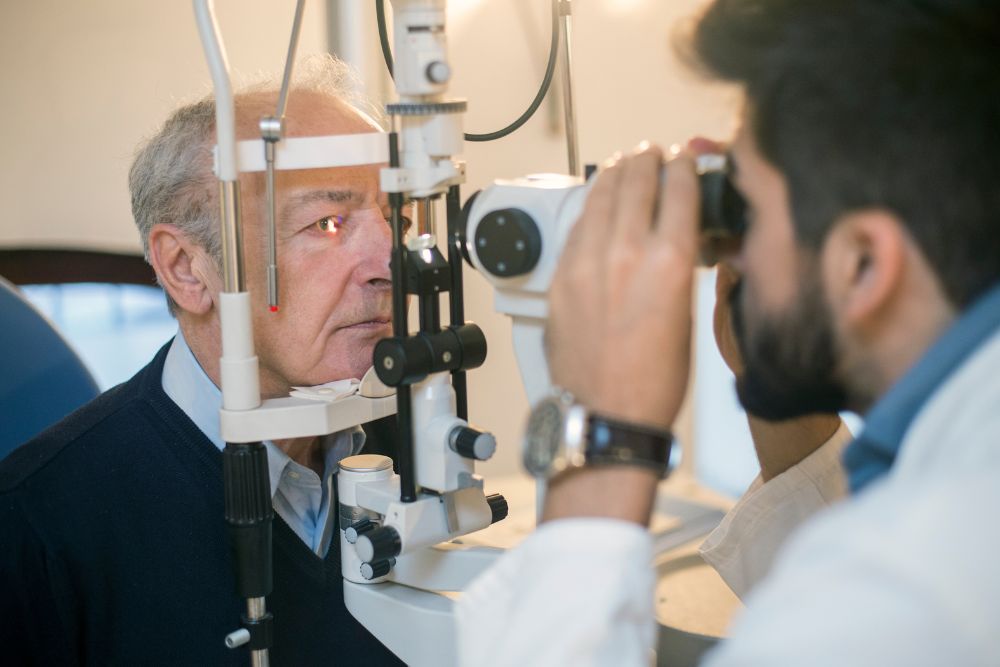What Patients Should Know About Age-Related Macular Degeneration

Age-related macular degeneration (AMD) is the leading cause of visual impairment and blindness in the United States, affecting approximately 15 million people, with about 1.5 afflicted with advanced stages of the disease. If you are over the age of 50 and have found it a little harder to see, it is likely AMD is a contributing factor, but how much do you know about this common disease?
What Is AMD?
AMD affects the macula, a part of the retina where central and color vision comes from. In the earlier form of AMD, which is referred to as dry AMD, degenerative proteins and lipids deposit under the retina, causing the retina to eventually break down. About 10% of patients with dry AMD end up developing a more advanced form known as wet AMD. In wet AMD, abnormal blood vessels grow in the retina and leak fluid, disrupting other retinal cells and leading to further vision loss.
Leading Contributing Factors of AMD
- Genetics – A family history of AMD increases your chances
- Smoking – increases the risk of the disease progressing
- Eye conditions – Light-colored irises and farsightedness
- Gender – Women pose a higher risk than men
- Race – Caucasians develop AMD at a higher rate than other races
- UV light – Wear your sunglasses!
- Other conditions – High blood pressure and cardiovascular issues as well as obesity
AMD is not curable, but there are treatment options to help slow the progression or prevent things from getting worse. Regular eye exams always help, but there are other measures you can take to keep yourself and your eyes healthy.
Vitamins for AMD
The American Academy of Ophthalmology says it may benefit those with AMD to take certain nutritional supplements and eat plenty of leafy greens. Supplements and diet will not cure AMD, but they may slow the progression of the disease, and improve your overall health. Be sure to take your doctor’s recommended dose of the following vitamins:
- Vitamin C
- Vitamin E
- Zinc
- Copper
- Multivitamins
Packing your plate with plenty of kale, spinach, and other leafy greens will also help prevent things from getting worse. Nutrients from antioxidant-rich vegetables can help protect the retina from further deterioration.
Quit Smoking
If you were looking for a reason to quit smoking, keeping your vision intact is definitely a good one. Studies have shown that smokers can be twice as likely to develop AMD as non-smokers. Quitting smoking along with maintaining an active lifestyle will help curb the symptoms and protect your retina from cellular damage.
Be Mindful of the Sun
The sun’s rays can be harmful. Extended exposure to UV rays from the sun or tanning beds can burn the corneas like a sunburn, also known as keratitis. Be sure to keep your eyes safe from harmful rays by buying sunglasses that provide 100% UV protection from all UV light.
There is no physical pain associated with AMD, so it’s important to get regular screenings with an eye doctor. Knowing how to protect your eyes will save you permanent damage and can prevent vision loss. Your eyes are the window to the world around you, and if you are experiencing the effects of sun damage, illness, or age, don’t hesitate to make an appointment with one of our retina specialists at Retina Associates, LLC today.
